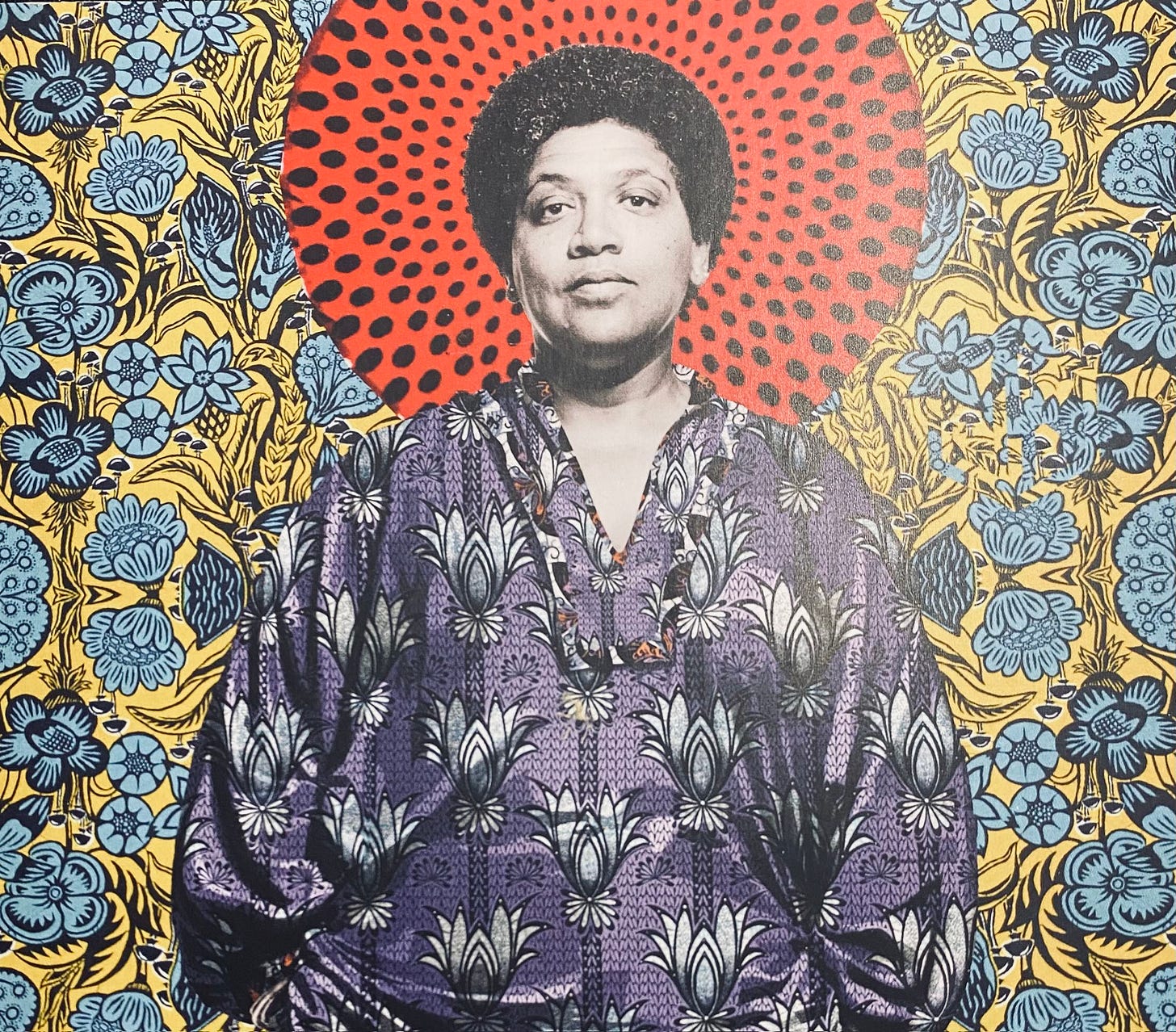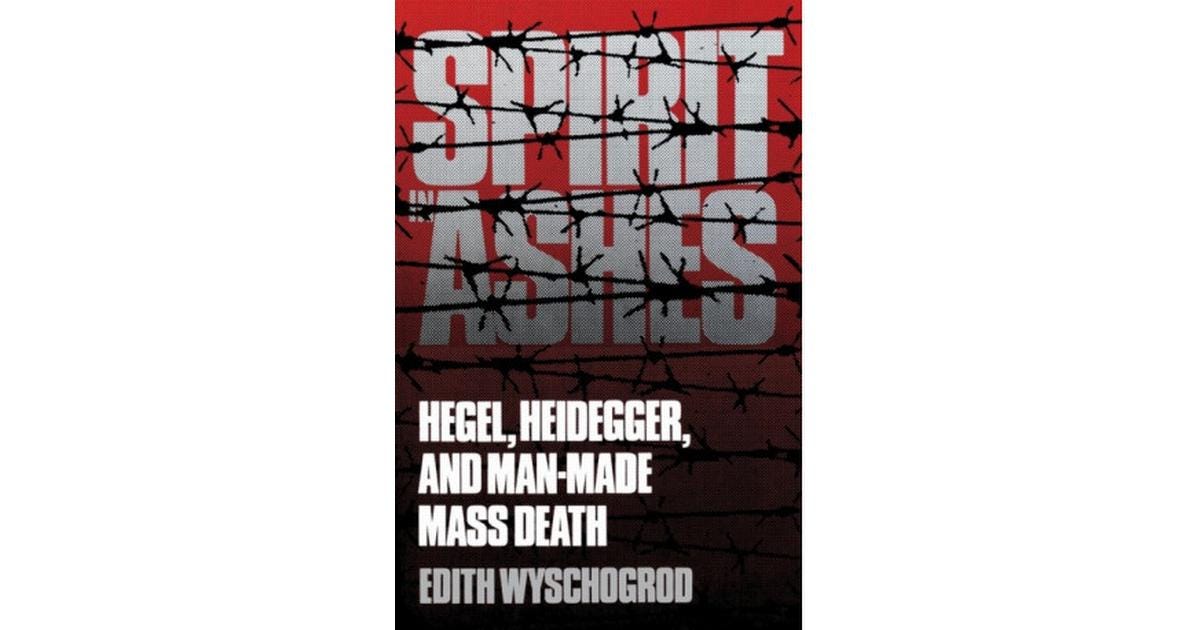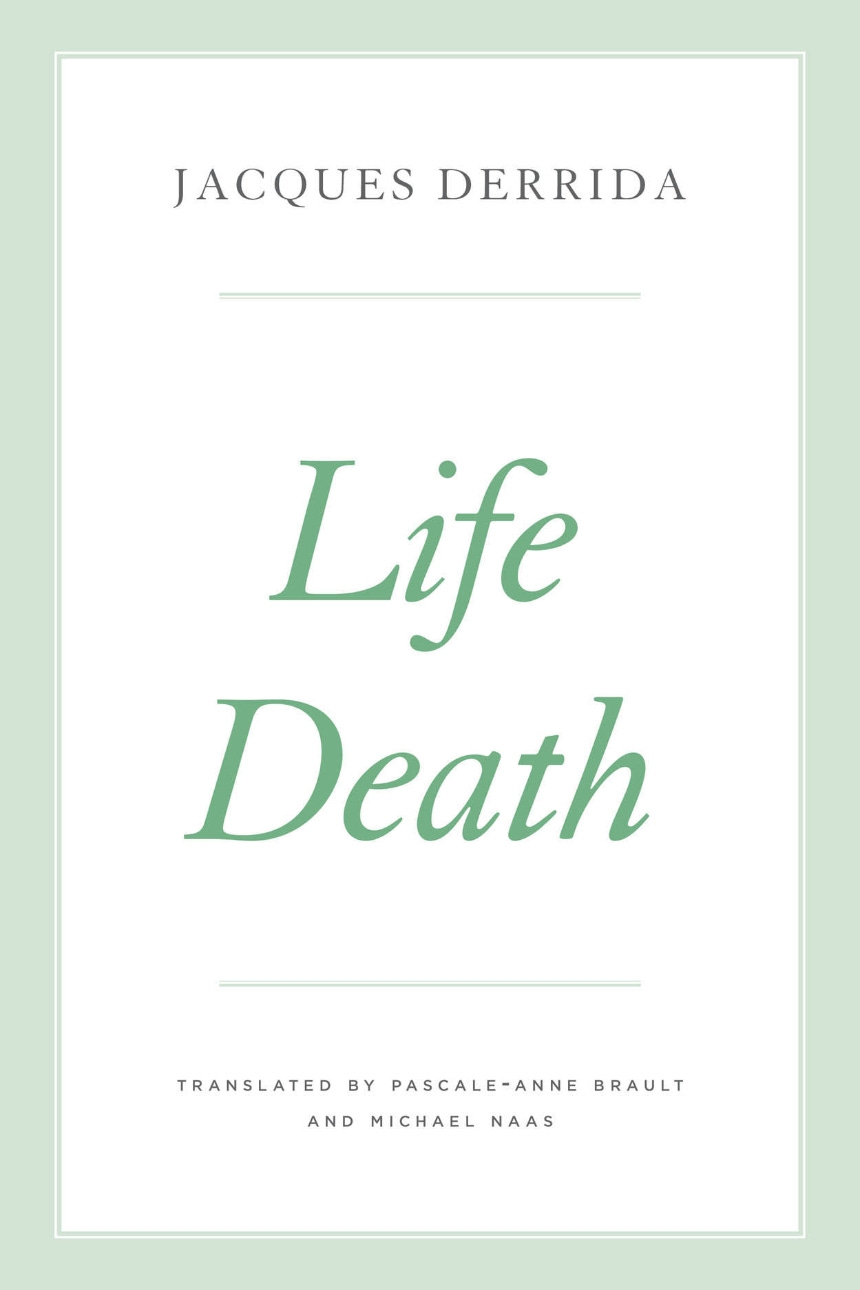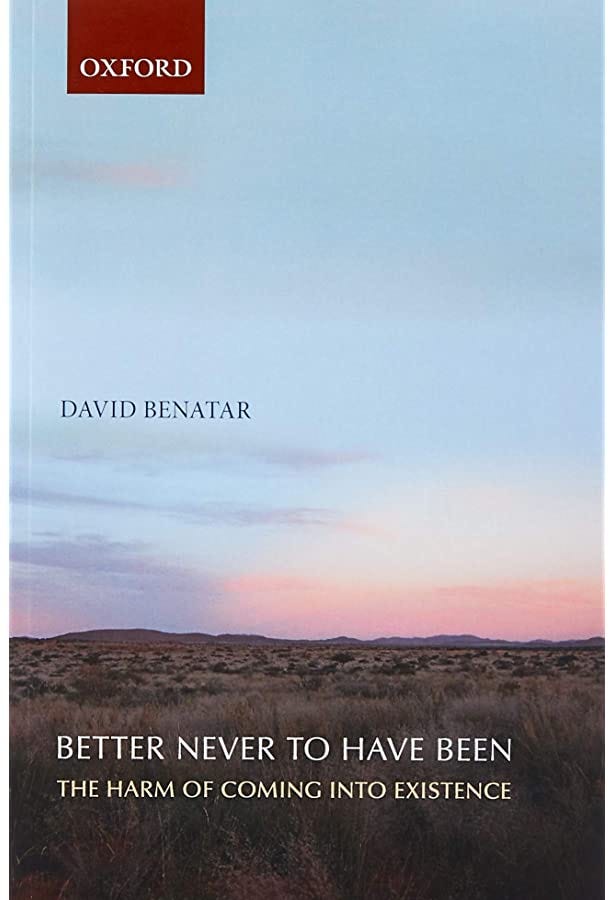
Months ago, as I was compiling the bibliography for my book, I made a joke on Twitter that my bibliography would make a great party. It was only a partial jest. When I spend a lot of time with a particular writer, I start imagining that we have a relationship. I’m sure some people would find this nightmarish, but how incredible would it be to pick a fight with that early modern philosopher you’ve been vehemently disagreeing with? Or bask in the glory of that long-dead poet you always cite? Or just sit back and watch people interact: the snubs, the flirtations?
Incidentally, when my husband was proofreading my manuscript and came across the passages where I cite the antinatalist philosopher David Benatar (more on him, soon) Ben said to me, “I bet this guy is a lot of fun at a party.” I laughed in condescending agreement, at the time. But then I remembered that I tend to be the person at the party having a long, engaged conversation with the nihilistic contrarian. They have a certain entropic magnetism that does draw some people in (including my husband, so maybe he was actually being serious?) A party works best with all types.
I know that fiction writers have their characters. But academic writers are also immersed in a world of characters. We just don’t create them. The medieval theologians, early modern philosophers, and psychoanalysts who appear in my book are the characters I’ve invited to support the wild speculations or tight arguments that I’ve assembled. So I think it’s only natural to wonder how they would all relate to one another at a real-world social event.
Thinking about the bibliography as a party invitation list has also made me more aware of the idiosyncrasies of a bibliography, which is inevitably as strange and random as the party host herself. The other day I was thinking about the most random books in my bibliography. Not the books I just cite once, but the unexpected books that ended up really changing my thinking for some mysterious reason. Which of the books were the most surprising guests at the party, in other words? Like that person a friend brings along, who you end up becoming close with?
I made a list of the five most random (but essential) books that ended up on my bibliography, and I want to share it with you!
Edith Wyschogrod’s Spirit in Ashes: Hegel, Heidegger, and Man-Made Mass Death (Yale University Press, 1985).
I’d read other books by the philosopher Edith Wyschogrod in graduate school. Saints and Postmodernism (1990) is the one that jumps immediately to mind when I think of her. But I’d never even heard of Spirit in Ashes, when a friend who’d read part of my manuscript recommended it to me. Aesthetically, the book is very much a product of American academic publishing in the 1980s. It was a book that I picked up, assuming it would be dated. This all made the book feel a bit random. But I was immediately struck by the fact that in the mid-1980s Wyschogrod was writing about topics that would become the stuff of mainstream theory only after the the 1990s. The world of man-made mass death that she describes arising out of World War II, and the death-worlds that it creates, seem to anticipate aspects of Giorgio Agamben’s Homo Sacer as well as something like Achille Mbembe’s Necropolitics. There were dimensions of the book that felt a little prophetic, in other words.
What Spirit in Ashes did, for me, was give me the language to describe profound shifts in the contemplation of mortality in the modern world. Wyschogrod argues that the western philosophical contemplation of mortality has traditionally been caught up in what she calls an “authenticity paradigm.” Philosophers have turned, ad nauseum, to something like the example of Socrates in order to suggest that a truly authentic form of life requires that we rationally reflect on our own individual mortality, and make peace with it. This is a kind of “art of dying” that seeks to tame death. In a world of mass-death, where we live with the constant knowledge of “the mass annihilation of untold numbers of persons” this paradigm falls apart and becomes meaningless. We need a way to think about mortality, Wyschogrod argues, that isn’t just about my own death but is about “the numberless dead.” As I put it in my own work: individual mortality is now less of an existential issue than collective mortality.
Audre Lorde’s The Cancer Journals (Penguin Books, 1980, 2020).
As was the case with Wyschogrod, I was familiar with Audre Lorde’s work before reading The Cancer Journals. But despite loving Lorde’s work, I really didn’t want to read The Cancer Journals. For a time, I actively avoided reading it. But I kept seeing references to the new edition of the book surface on social media, in the early days of the pandemic. When I started to think more actively with Lorde in my own book (especially what she has to say about sisterhood), I finally caved and read it. Maybe it was the resistance that made reading this book feel random.
Given that I was writing a book about death, I’ve wondered what this avoidance was about. I think I was ultimately afraid of the fact that this would be a book about pain, more than a book about death. I wasn’t wrong. These are journals that document Lorde’s ongoing struggle with cancer. Pain—both physical and emotional—is on display in these pages. But Lorde also models a form of courage to cope with it that is truly an inspiration.
Ultimately, what The Cancer Journals showed me was another way to cope with mortality that was outside of what Wyschogrod called the “authenticity paradigm” of western philosophy. Yes, Lorde is coping with her own cancer and so her own mortality. But she doesn’t think of this in singular or individualistic terms. She writes about the “commonality of isolation and painful reassessment” that women with breast cancer share. She writes to, and for, other women with a keen awareness of the mortal vulnerability we share. She speaks about the fact that we—those of us who try to survive in America—have been thrown into a “cosmic war” against “animal fat, air pollution, McDonald’s hamburgers and Red Dye No. 2.” But she does not think of us as waging a war with death. For Lorde, death is not an enemy or a friend but is instead a fact to live with, and in spite of.
Jacques Derrida, Life Death (University of Chicago Press, 2020).
Derrida is another thinker on the list who was far from new to me, when I read this book. I read Derrida’s work for the first time as an undergraduate in the early 2000s. In fact, I partly blame Derrida for the weird intellectual path that landed me where I am today. But when I decided to read this book, in 2019, it had been years since I’d read Derrida. Perhaps you could say that I’d begun to think of him as a thinker of my past. So it felt random when I ended up with this book.
I was so determined to read this set of lectures, however, that I read the book before it was even translated. Which means that, yes, I spent many hours translating the French lectures myself. It was painful. I am not especially skilled at translation. Nor am I especially good at reading and speaking French. But I felt like this book would be such a key to my argument that I couldn’t move ahead in my research without it. When I sat down with my final manuscript, to replace my own crude translations with the officially published translations from Chicago University Press, I realized that mine were actually pretty decent!
What Derrida’s book did for me was, in essence, to give a philosophical backbone to my claim that western thinkers tend to throw life and death into a relation of oppositional enmity. Derrida doesn’t argue that life and death are the same thing. Nor does he argue that they are engaged in mutually beneficial relations. But he does call out the history of philosophy for convincing us that one can be removed from, or purified, of the other.
Rachel Hallote, Death, Burial, and Afterlife in the Biblical World: How the Israelites and Their Neighbors Treated the Dead (Rowman & Littlefield, 2001).
If you know anything at all about the history of burial rituals and practices in a place like the contemporary United States, you know that despite the veneer of inevitability and naturalness we tend to give them, they harbor deep political marks. The practices that are legal, for instance, are shadowed by the many indigenous rituals and practices that were outlawed by the United States government. We know this, because we have access to historical records. But when it comes to the ancient past, burial practices and beliefs about death and the afterlife often seem much more fixed and inevitable. There’s so much that went into shaping them that we can’t see.
Hallote’s book is animated by a curiosity about biblical prohibitions against necromancy (the practice of communicating with the dead). It’s clear in ancient biblical texts like 1 Samuel that communicating with the dead is a no-no. And this, perhaps, leaves many contemporary readers with the impression that there’s something inherent to a tradition like Judaism that would preclude necromancy or ancestor worship. But as biblical studies scholars often show us, these prohibitions exist in ancient texts because they were seeking to push back against something that was actually quite common. Hallote examines archeology in order to illuminate the Cult of the Dead that was commonplace among ancient Israelites before prohibitions against necromancy emerged.
I do make use of biblical studies texts, from time to time, because I often have things to say about the Bible. But I’m not a biblical studies scholar, and these texts are rarely integral to my arguments. Hallote’s book, on the other hand, really got into my head. One of the things that her book helped me to see was just how political our death rituals and practices really are. And how this has probably always been the case. One way to shift social relations in a community is to shift the way that people engage with the dead. And shifting the way that people relate to the dead can often have the impact of shifting the way they relate to unseen forces at large—not only only the dead, but other spiritual dimensions that shroud them.
David Benatar, Better to Have Never Been: The Harm of Coming Into Existence (Oxford University Press, 2006).
As promised, here’s a little more about the antinatalist philosopher David Benatar. This isn’t, on the surface, a book about death. It’s a book about birth, and why being born is essentially so terrible. While my book isn’t a book about birth, I do have an entire chapter on birth where I reflect on why it’s so problematic to convince people that birth and death (natality and mortality) are opposing forces. My point is that birth itself is full of death. And death can facilitate birth. Prior to reading Benatar’s book I’d been contemplating other antinatalist perspectives, such as Lee Edelman’s. But Benatar’s claims are incredibly simple, broad, and far-reaching. He’s designed them to be a kind of intellectual assault.
Benatar is essentially arguing that there’s so much pain and suffering involved in being alive that all of us would be better off not existing at all. It’s always ethically problematic to bring new life into a world of suffering. I wouldn’t go so far as to say that I agree with Benatar. But reading his book certainly clarified, for me, where it is that I actually stand. I think that my chief critique of his argument is that he treats birth and natality as matters of pure choice. As if every birth is the result of a conscious, rational decision that an individual (or set of individuals) made. A birth is often driven by a much more complex set of motives (duty and obligation, trauma, accident, compulsion). But I don’t think I would have been able to articulate this, without Benatar. He’s commented that most people are just too optimistic to take him seriously. He recognizes the rhetorical role that his work plays, in other words. And I have to kind of respect him for being willing to share ideas that will be so broadly unappealing. I aspire to be so indifferent to being liked.
Have you read any of these books? Would you add anything to my commentary?









